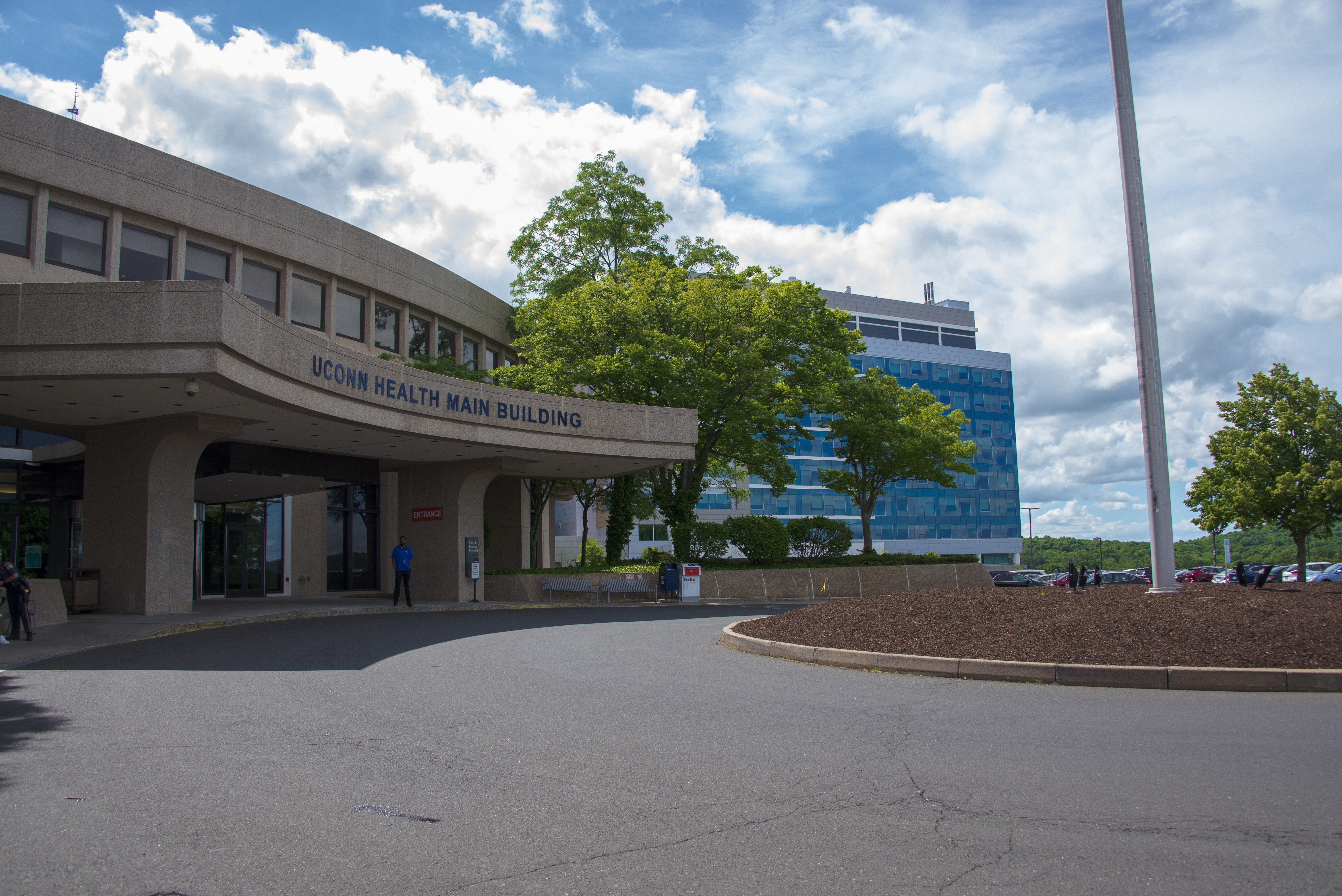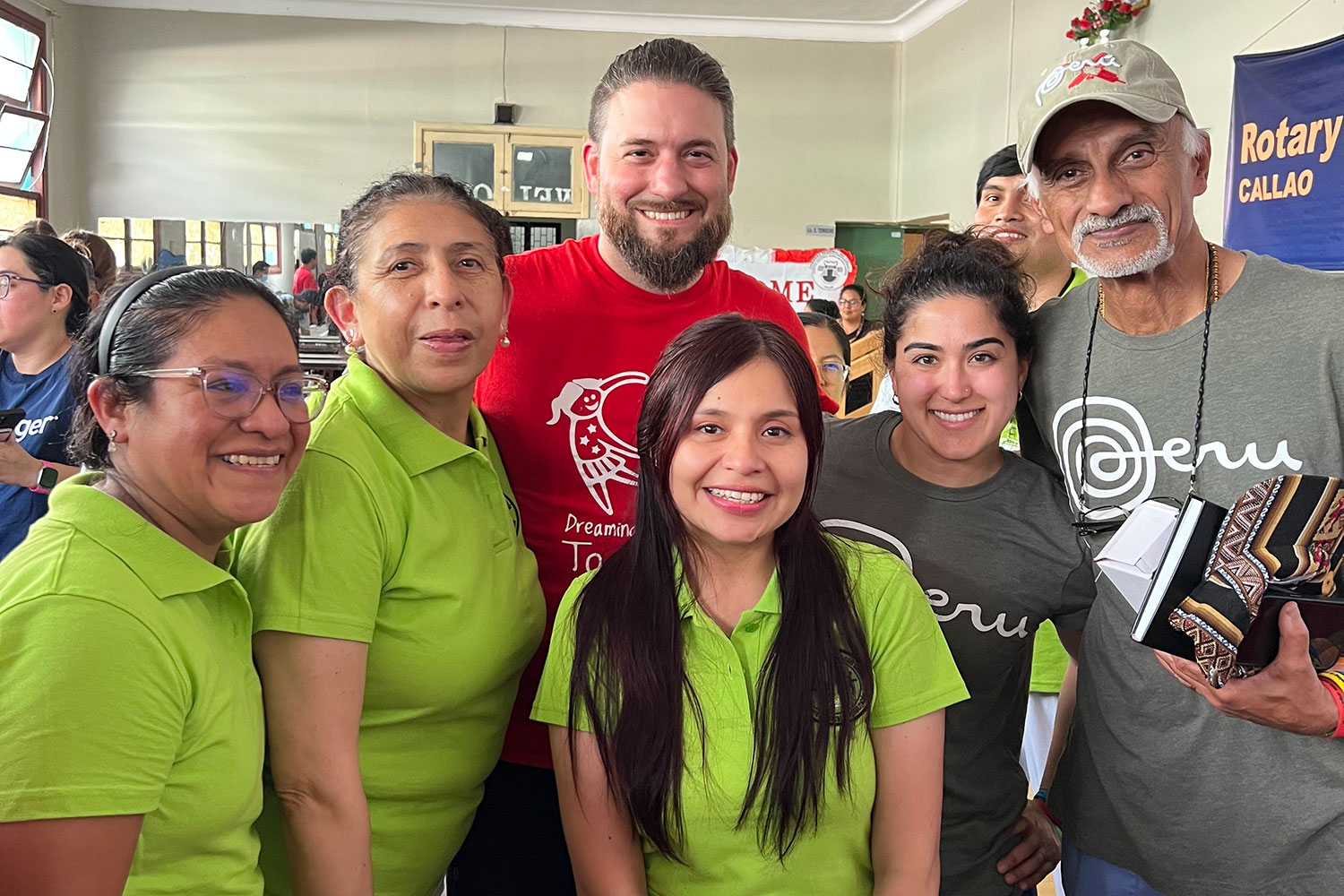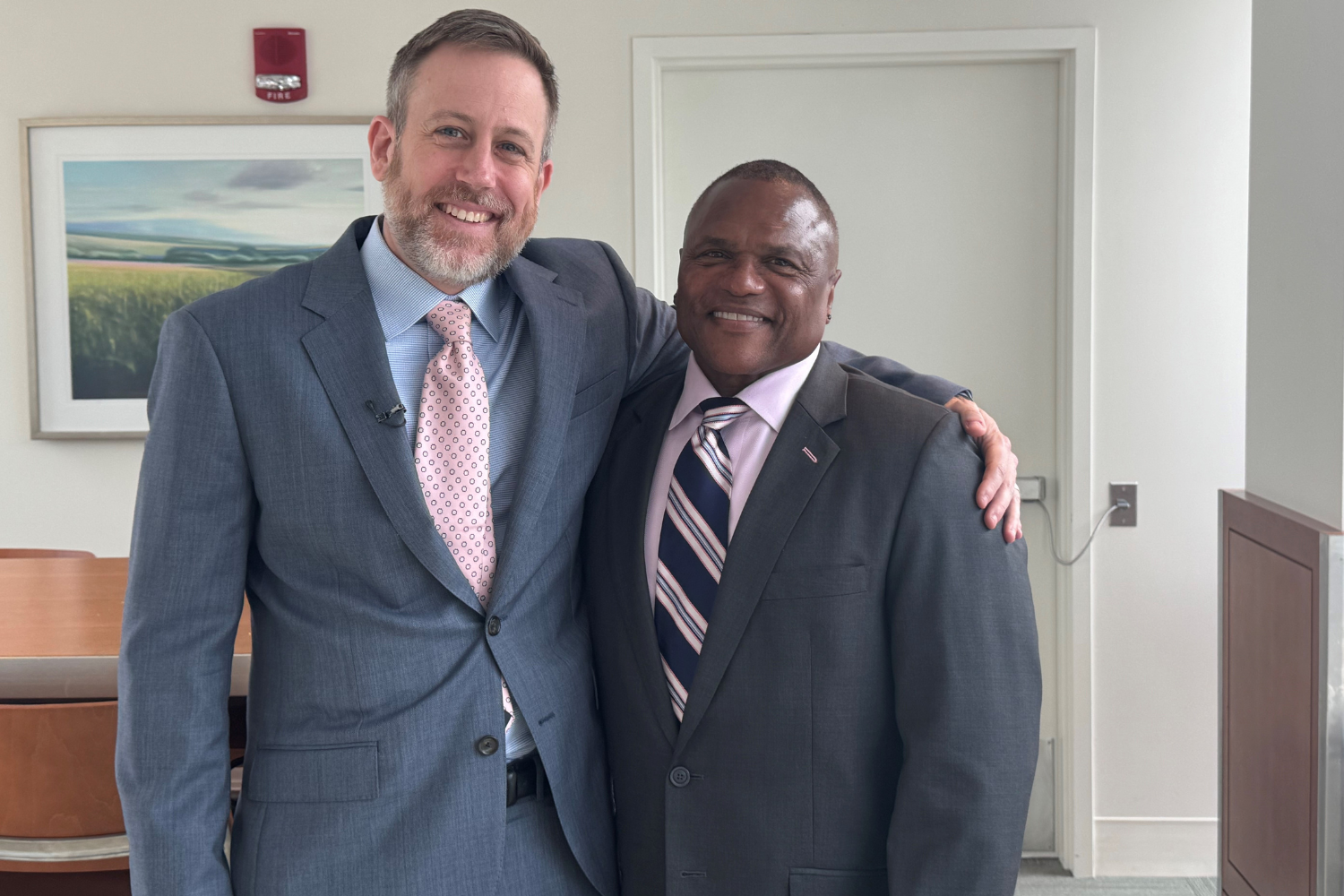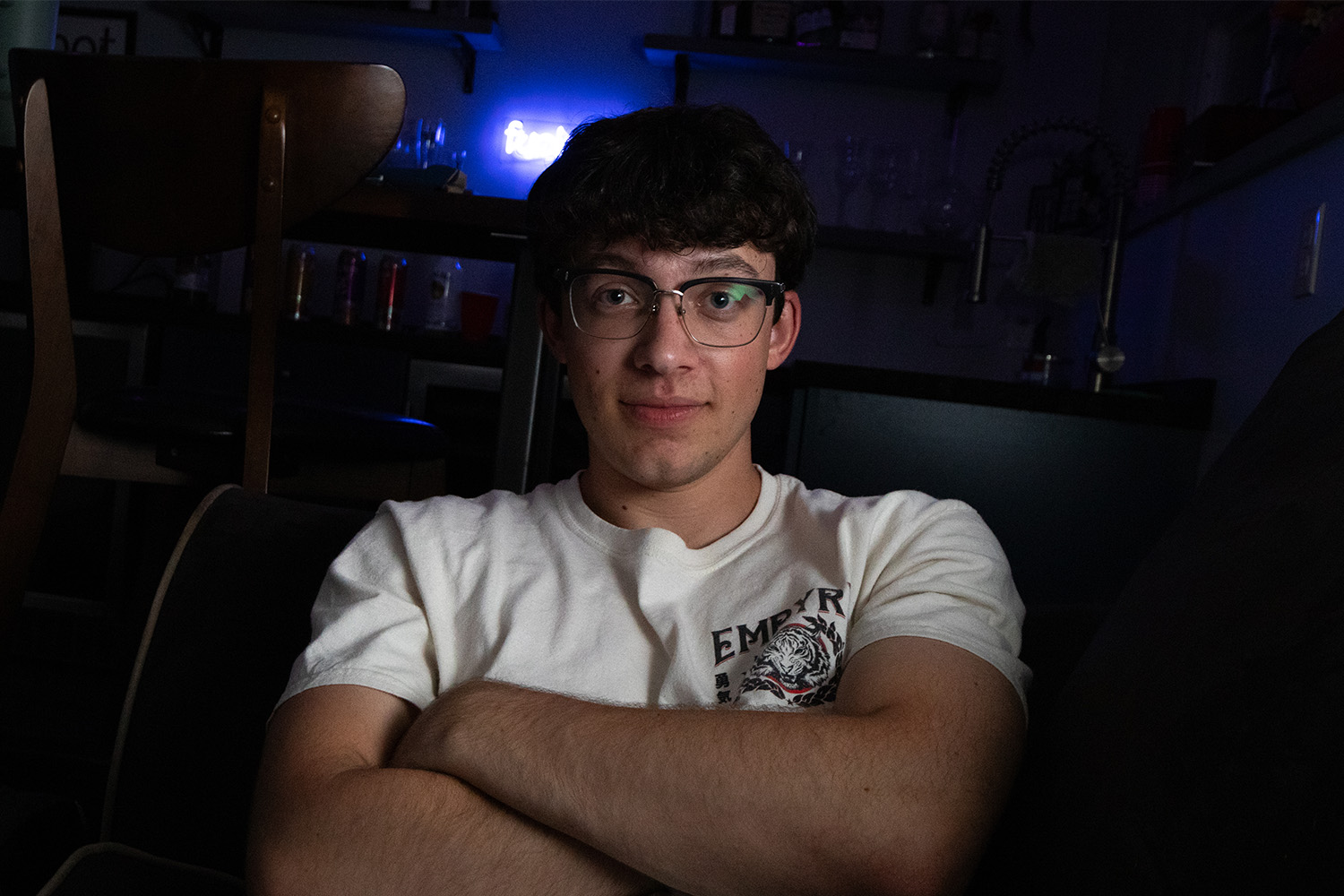As Connecticut prepares for the arrival of a vaccine aimed at turning the tide against the COVID-19 pandemic, UConn experts are playing a vital role in shaping the strategy for the allocation and evaluation of that vaccine.
Four UConn health and emergency preparedness experts are members of Gov. Ned Lamont’s COVID-19 Vaccine Advisory Group, with two serving as co-chairs of subcommittees. The advisory group has been responsible for helping the governor prepare for a COVID-19 vaccine, including the optimization of a statewide distribution strategy, and communicating critical medical information about the vaccine to the state’s residents.
The dozens of individuals on the panel represent a broad range of interests. They include members of the General Assembly, epidemiologists, academics, church leaders, labor leaders, doctors and health care providers, industry and business representatives – including the health insurance industry and the state’s long-term care facilities – and even a college student.
The group’s charge is to advise on three different areas, each overseen by a different subcommittee. One focuses on the safety of the federal approval process and the science behind the vaccine, while another will advise the governor on how to distribute and allocate the vaccine. The third panel will focus on marketing and advertising to get information about the vaccine to the public.
Dr. David Banach, Associate Professor and Hospital Epidemiologist at UConn Health, was named as co-chair of the science subcommittee, and Zita Lazzarini, JD, MPH, Associate Professor, Director, Social and Behavioral Sciences and Director, Division of Public Health Law and Bioethics in the Department of Public Health Sciences at the UConn School of Medicine, was named co-chair of the allocation subcommittee. Also included on the allocation subcommittee from UConn are Nicole Hawley, Emergency Management Program Specialist in the Office of Emergency Management, and Marlene Schwartz, Professor and Director, UConn Rudd Center for Food Policy and Obesity.
The Food and Drug Administration’s (FDA) independent advisory group voted on Thursday to recommend authorization for emergency use of the COVID-19 vaccine made by Pfizer, and an approval from the FDA is expected to come shortly.
Moderna, also manufacturing a vaccine, is scheduled to meet with the FDA and their advisory group on Thursday, Dec. 17th.
The role of the science subcommittee, co-chaired by Banach and Jason Schwartz of the Yale School of Public Health, is to review data from the federal government, determine how that data may affect the population of Connecticut, and provide guidance for decision-makers.
“I think the vaccine is the promise that this will eventually end,” says Banach.
According to Banach, although the vaccine was developed quickly, there was no sacrifice in the quality of the research that produced it. The “phase three” trials – the period of the vaccine development process in which it is tested on a large number of participants – were done with the same level of detail as any other phase three trial, and in the Pfizer trial, over 40,000 people were followed for three months. Ironically, the rapid spread of the virus helped the development of the vaccine move at a much quicker pace than is typical.
“A vaccine has never been created in the middle of a pandemic, and studies were being conducted at a time where there were a lot of infections, which provided an environment where many subjects could reach the study endpoint in a short period of time,” says Banach.
Banach’s role on the committee doesn’t end upon the approval of the vaccine; he and his colleagues will continue to share their expertise as studies continue and more data is collected.
“The data that we’re seeing for the SARSCoV-2 vaccine is very promising. I think the efficacy rates are higher than what we could have anticipated,” says Banach.
The science subcommittee includes a wealth of experience and expertise in various areas of health care and public health.
“We are fortunate in Connecticut to have a great deal of expertise in the area of health policy, and it’s been great working with all the experts in this group,” says Banach.
Before the vaccine can be distributed, states must decide who will be first in line to be inoculated. Initial supplies of the vaccine will be limited and distributed to states based on population and a few other factors.
The allocation subcommittee co-chaired by Lazzarini and Nichelle Mullins, President and CEO of Charter Oak Health Center, will advise the governor on how to ensure fair and equitable distribution of vaccines, especially while supplies are scarce.
The allocation subcommittee, which includes a diverse group of participants from health care, government, academia, and community interests, has been charged with reviewing federal recommendations for the allocation of vaccines from the federal Centers for Disease Control and Prevention (CDC) and the Advisory Committee on Immunization Practices (ACIP), an independent panel advising the CDC on allocations. The subcommittee then makes recommendations to the commissioner of health and the governor based on data specific to Connecticut’s population and other factors.
“At this time, the federal guidelines for allocation seem to be grounded in evidence, and to take into account those with the highest risk of exposure and risk of dying from COVID-19,” says Lazzarini. “Any adjustments being made state-to-state are reflective of that state’s population and local priorities.”
On Dec. 1, the ACIP voted to recommend that residents and employees of nursing homes and similar facilities be among the first to receive the vaccine, along with health care workers who are especially at risk of being exposed to the virus. The final decision for implementation of the CDC recommendations is decided by each state’s governor.
UConn Health will be responsible for vaccinating only health care workers, specifically those working in the towns of Avon, Canton, and Farmington. UConn Health employees, as health care workers, will be eligible to receive the vaccine at the Farmington campus. Front line personnel at the highest risk of COVID-19 will be prioritized.
“While Nichelle and I are named co-chairs of the sub-committee, it really is a group process and I am honored to have been asked to be involved,” says Lazzarini. “The committee has many years and a great depth of experience, and has had great support from DPH.”



